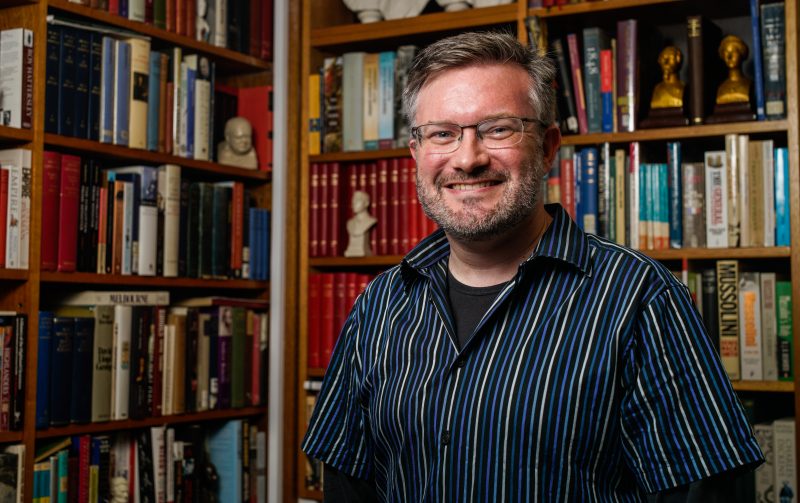As a new year dawns, University of New England Associate Professor Richard Scully fears for the future of the political cartoon.
“Cartoonists are as important as they have ever been,” said Richard, who has spent more than a decade studying the tradition and history of the political cartoon. “However, a lot of satire is moving online and it can be hard to find cartoons behind paywalls. Some newspapers are also now using photographs to communicate satire instead. I worry that soon we won’t have the staff cartoonists to produce cartoons.”
Yet the cartoonist remains a vital commentator. “In a few short strokes of a pen they can enunciate what it would take a writer a whole column to say,” said Richard. “Cartoons give voice and structure to what people may be thinking. They don’t necessarily change peoples’ minds or opinions, but a strong cartoon challenges you; it provokes debate.”
Cartoon gifts of 2017
Associate Professor Scully says the likes of Donald Trump, Tony Abbott and Malcolm Turnbull gave cartoonists plenty of ammunition in 2017. “Some politicians are absolute gifts – like Donald Trump, who is so ridiculous he almost makes satire impossible,” he said.
“Politicians have their spin doctors, who do their absolute best to create an image of how they want to be seen, but it seems the harder they try, the easier the job of the cartoonist is.
Some people are almost caricatures of themselves to begin with.”
Drawing the line
He believes that readers still value cartoons, which at their best give what whimsical cartoonist Michael Leunig describes as “a voice to the voiceless”. “We have a nostalgic attachment to cartoons as a gold standard for a free press,” Associate Professor Scully said.
But the global reach of cartoons today can make it challenging for cartoonists to determine where the line – literally and philosophically – is. “The Internet has completely changed the game; the impact of a cartoon is now potentially exponential,” he said. “It’s no longer a black-and-white sketch in a newspaper. These days it is likely to be distributed worldwide, and something that resonates in one country may cause offence in another.
“Sometimes a cartoon is so powerful and confronting that it will make you feel unwell; others will make you roar out loud. The world can be a bleak and terrible place, so it’s good to laugh sometimes.”


